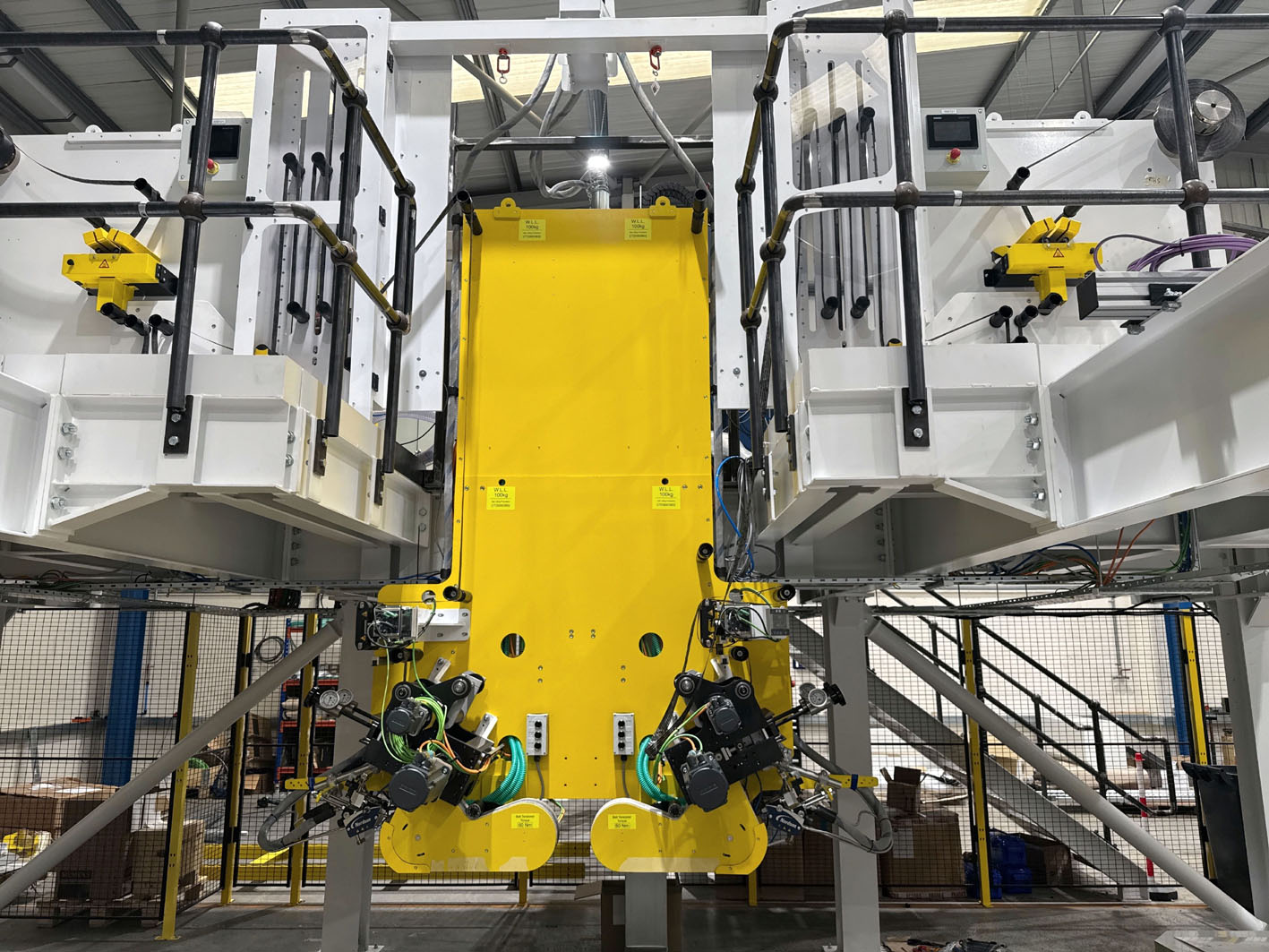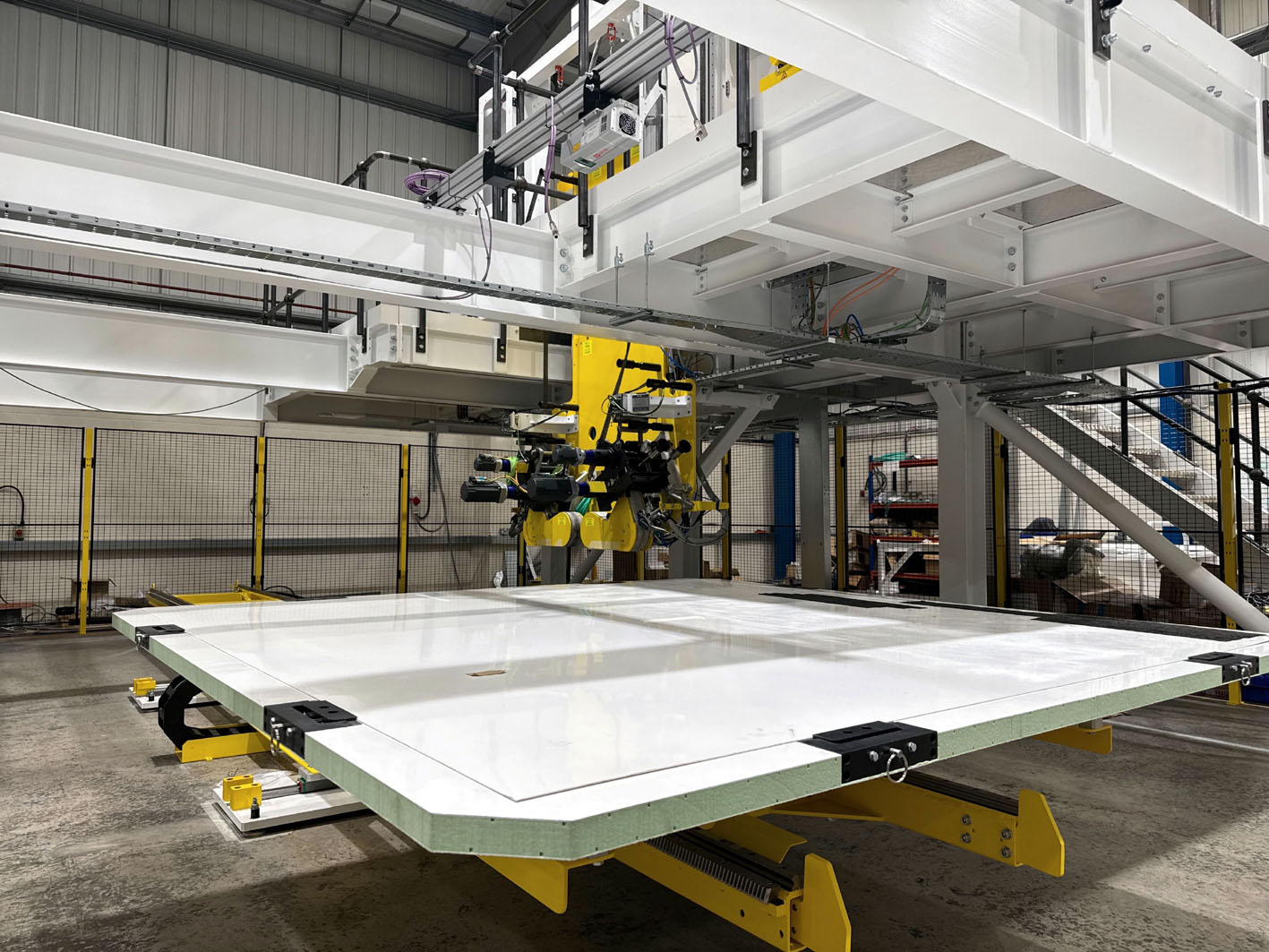
Milestone for McLaren
High-rate fibre deposition technology has potential for multiple markets.

29th October 2025
Innovation in Textiles
|
Northwich, United Kingdom
Composites technology specialist Cygnet Texkimp has industrialised a new high-rate fibre deposition process from a concept originally developed by supercar manufacturer McLaren Automotive.
The ART (Automated Rapid Tape) technology is designed to overcome the challenge of producing high quality, complex composites-intensive parts at a viable rate and forms part of a development programme spearheaded by McLaren’s in-house innovation team.
McLaren has now agreed an exclusive licensing agreement allowing Cygnet to market the solution to other industries including aerospace, space, defence, wind energy and industrial, as part of a long-term strategy.
McLaren commissioned Cygnet to develop its technology into a full production-scale machine after the two companies took part in the £40 million ASCEND project led by Tier-1 aerospace supplier GKN to develop the technical and supply chain capability to manufacture composites-intensive components at higher rates.
A prototype high-rate deposition machine has been installed at the McLaren Composites Technology Centre (MCTC) in Sheffield and is already integrated into McLaren’s manufacturing processes and producing structural components for current supercar programmes, including the McLaren W1 Ultimate Supercar
A second industrial-specification ART machine, currently being built at Cygnet’s Innovation Centre in Cheshire, will be installed at the MCTC in November 2025, for increased manufacturing capacity.

The ART solution has been developed to manufacture high performance carbon fibre composite parts with minimal scrap, using less carbon fibre more effectively. Lengths of dry composite tape are laid down in rapid and accurate formation at a speed of up to 2.5 metres per second, in a way that significantly reduces the potential for waste generated by offcuts that cannot be reused. Up to 95% of the dry tape feedstock used to layer a component goes into the final part.
This creates new possibilities for innovation in automotive and aerospace engineering and design through fibre placement technology (FPT). This element of the technology enables manufacturers to accurately tailor the load bearing and stiffness characteristics of the finished part through the strategic positioning of the fibres. Specific adjustment of fibre orientation within the composite material allows for anisotropic stiffness – rigidity can be enhanced in specific directions while flexibility can be maintained elsewhere. This allows new ways to design highly loaded, complex aerodynamic components that can also be made visually distinct.

The process has also been highly automated and digitised to offer extensive handling and real-time monitoring capability. As a result, end users can determine that every part has been manufactured to identical specifications, which in turn leads to significant time saving benefits linked to speed of manufacture and reduced test frequency.
A full-scale demonstration machine at Cygnet’s Innovation Centre will be available for customer trials in early 2026. Within the centre, organisations will also benefit from Cygnet’s tape manufacturing capability which includes advanced machines to manufacture dry carbon fibre tapes alongside high performance thermoset, thermoplastic and ceramic prepreg materials.
“ART combines McLaren’s extensive knowledge and experience of highly specialised carbon fibre engineering with our world-leading fibre handling and processing expertise and understanding of mechanics and controls,” said Cygnet CEO Luke Vardy. “The technology unlocks enormous potential for large-scale global markets to access the benefits of a highly specialised carbon fibre and composites manufacturing solution first developed for aerospace and high performance automotive-grade composites. It is relevant to many industries for the manufacture of composite structures that are optimised for superior performance.”

Business intelligence for the fibre, textiles and apparel industries: technologies, innovations, markets, investments, trade policy, sourcing, strategy...
Find out more